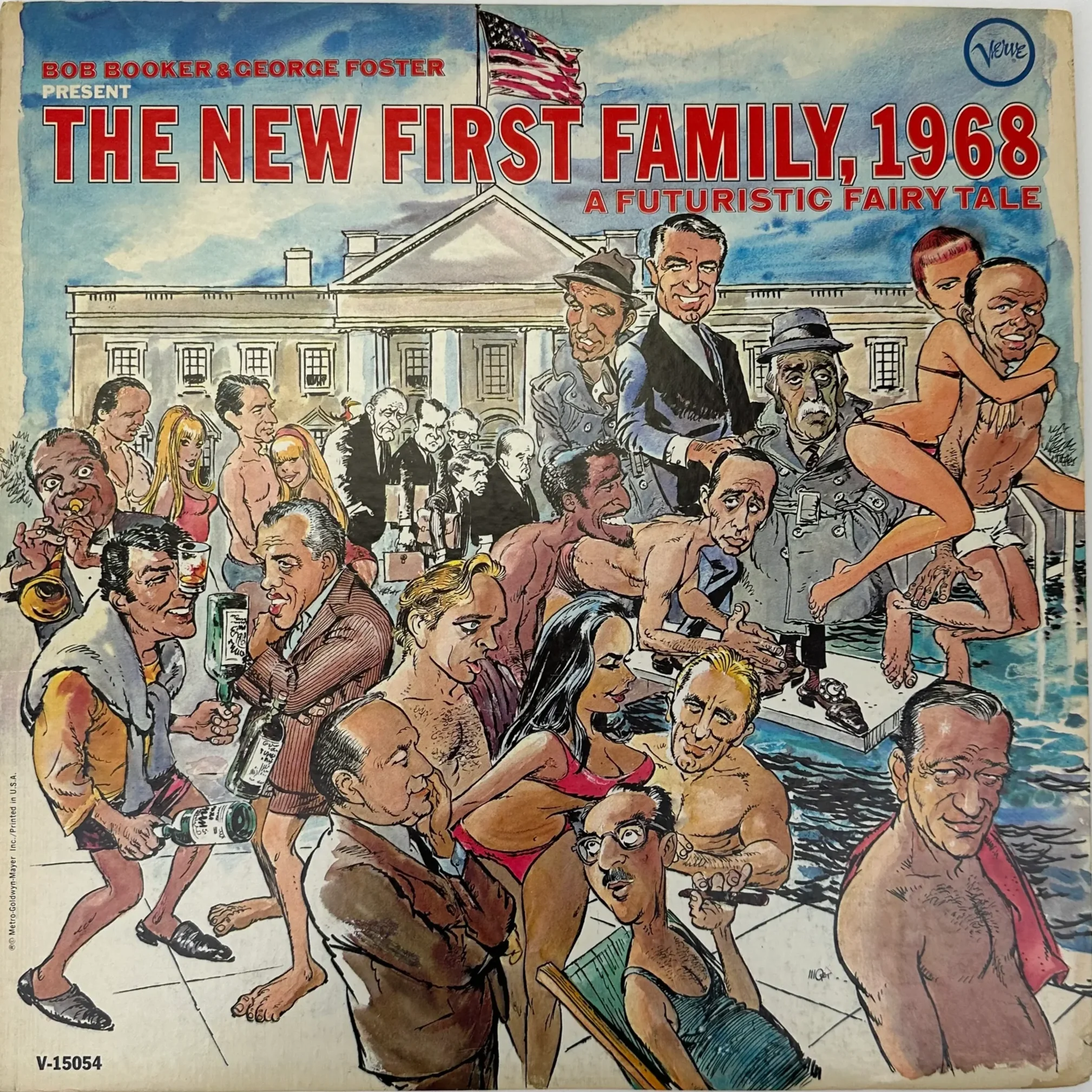Super polite political spoof: The New First Family, 1968
Recorded 1966 at Columbia Recording Studios.
I’m back on task, reviewing dusty comedy vinyl albums I bought in 2021. You know, records don’t hold much material, maybe 20 minutes or so on each side. Listening is easy, but reviewing them takes a few more brain cells.
I selected The New First Family Album, 1968: A Futuristic Fairytale. It follows Cary Grant as he and his Hollywood friends take over the White House.
Take a look at the rampant sexism on the cover. Pretty amusing, including a bikini-clad Mia Farrow piggybacking on Frank Sinatra. Note: Mia was married to Frank, but her doppleganger doesn’t perform in this radio-style parody.
The album was recorded in 1966 in anticipation of the next big presidential election.
For context, Lyndon Johnson was president, for real, at the time. Bobby Kennedy was a New York senator. Cary Grant had stopped acting to be a father. Sammy Davis Jr. kissed Nancy Sinatra on television, one of the first black-white kisses on the medium.
All of the six actors (five white men and one white woman) portray more than one celebrity voice. In the segment called “The Acting School,” for example, actor David Frye earns applause for playing Bobby Kennedy, Lyndon Johnson, Kirk Douglas, and Richard Burton, one right after the other, each consecutive voice adding to the narrative.
While this album seems tame, producers Bob Booker and George Foster took a risk. The First Family Album (1962) spoofed the Kennedy family, including the children, a gutsy step. Widely played on the radio, the album quickly became the fastest-selling (pre-Beatles) record in the history of the record industry. It won a Grammy!
Actor Vaughn Meader, who played John F. Kennedy, was a sensation.
But then came the release of The First Family Volume Two (1963). The timing couldn’t have been worse.
Just hours after Kennedy’s assassination, comedian Lenny Bruce got on stage and said, “Boy, Vaughn Meader is fu**ed.” And he was.
Bob Booker pulled the album, out of respect for the Kennedy family. No one wanted to associate with Meager, who sank into a life of depression and addiction. Meader’s obituary in the New York Times reported: “Mr. Meader often referred to Nov. 22, 1963, as "the day I died."
Bravely, the concept of presidential parrdy returns with this album, just a few years after Kennedy’s death.
The audience is emarkably polite, very neat laughs and applause. And the premise is also gentle, in comparison to the Daily Show and Saturday Night Live. Certainly, it paved the way for satiric comedy speaking truth to power.
